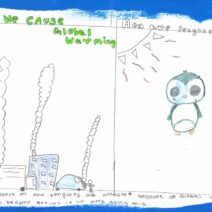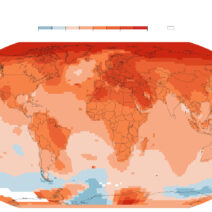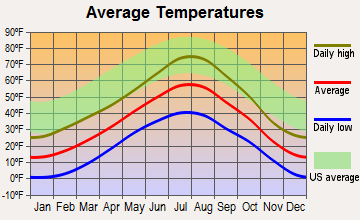Indonesia, a sprawling archipelago straddling the equator, is grappling with an unprecedented health crisis exacerbated by climate change. The dual threats of rising temperatures and shifting weather patterns are not merely environmental challenges; they pose direct risks to public health. As the nation navigates this precarious landscape, an urgent need arises to adapt its health systems and strategies to mitigate the impending crises. This discourse examines the multifaceted implications of global warming on Indonesia’s health landscape, illuminating the call for innovative adaptations and holistic perspectives.
The introduction of climate change as a contributing factor to health crises necessitates a reconceptualization of traditional health models. Indonesia already contends with a mélange of health issues, including infectious diseases, malnutrition, and a burgeoning burden of non-communicable diseases. The interplay of climate effects—such as droughts, floods, and extreme temperatures—intensifies these challenges. For instance, with the increase in average temperatures, vector-borne diseases like malaria and dengue fever are predicted to proliferate as the geographical range of disease-carrying mosquitoes expands.
Moreover, the frequent inundation of coastal areas and inland flooding catalyzes the onset of waterborne diseases. In regions such as Jakarta, where flooding is becoming increasingly frequent, cholera and other gastrointestinal diseases threaten the well-being of the populace. The nexus of climate change and health is palpable; thus, exacerbating poverty and inequality becomes inevitable as marginalized communities bear the brunt of these health impacts. The symbiotic relationship between climate vulnerabilities and health disparities illustrates a scenario where the most affected populations have limited resources to mitigate risks or adapt to sudden health emergencies.
In recognizing these realities, Indonesia must pivot towards integrative health strategies that include climate-resilient planning. One such approach is enhancing the infrastructure to withstand and respond to climatic shocks effectively. This not only entails investing in robust healthcare facilities but also ensuring that the medical workforce is well-equipped to manage climate-induced health problems. Training healthcare providers to anticipate the physiological impacts of climate change can lead to more proactive care. They must grasp the nuances of emerging diseases aligned with changing weather patterns.
Furthermore, public health campaigns need to integrate climate awareness into their narratives. This shift can catalyze community mobilization and empowerment, fostering a culture of preparedness. Engaging communities through education about the health effects of climate change and prevention methods can enhance resilience. For instance, grassroots movements might focus on promoting the use of simple interventions—like the adoption of mosquito nets—to combat the spread of vector-borne diseases.
Beyond infectious diseases, the impact of climate change extends to mental health. The psychological ramifications of climate-related disasters, including displacement and loss of livelihoods, are profound. Individuals confronting the specter of climate anxiety and uncertainty require mental health support systems that are adequately funded and widely disseminated. Initiatives aimed at community building and psychosocial support must be foundational to Indonesia’s health strategy moving forward.
Additionally, a critical examination of the link between environmental degradation and human health is crucial. Deforestation, a pressing issue in Indonesia, not only contributes to global warming but also significantly affects air quality. The ramifications are dire, with respiratory ailments and other chronic conditions rising in tandem with the degradation of air quality. Adapting to this reality requires an intersectional approach, promoting sustainable practices that simultaneously address health and environmental integrity. Urban planning that incorporates green spaces could alleviate air quality concerns while enhancing the overall well-being of the population.
Adaptation strategies must also emphasize sustainable agriculture, particularly given Indonesia’s reliance on this sector for economic vitality and nutrition. Climate variability poses existential threats to food security, with crop yields fluctuating wildly in reaction to altered rainfall patterns. Diversifying food sources and incorporating climate-smart agricultural practices can not only safeguard livelihoods but also improve nutritional outcomes, thus strengthening the population’s resilience against both climate change and related health issues.
The governmental response to these multifarious challenges must be robust, innovative, and inclusive. Policymakers are called upon to forge collaborative frameworks that encapsulate health, environment, and socioeconomic considerations. Multilateral partnerships can harness collective expertise, and funding can be allocated strategically to prioritize communities at risk. Policies should focus on establishing early warning systems to predict and respond to climate-related health crises, thereby minimizing loss of life and mitigating health burdens.
Across Indonesia, the transformation of health systems to adapt to climate realities resonates with a profound call to action. The need for cooperation among various stakeholders—from local communities to national policymakers—is paramount. By cultivating an ethos of adaptation rooted in environmental stewardship, Indonesia can navigate the treacherous waters of health crises spawned by global warming.
To summarize, addressing Indonesia’s health crisis in the context of climate change requires a paradigm shift. Such a shift encourages a holistic view of health that incorporates environmental sustainability, community resilience, and proactive governance. Embracing innovative strategies will ultimately empower Indonesia not only to withstand the effects of global warming but to emerge as a beacon of adaptive healthcare practices for other nations facing similar predicaments. As the world grapples with climate change, Indonesia’s experience may offer critical insights into forging pathways towards a healthier, more sustainable future.








